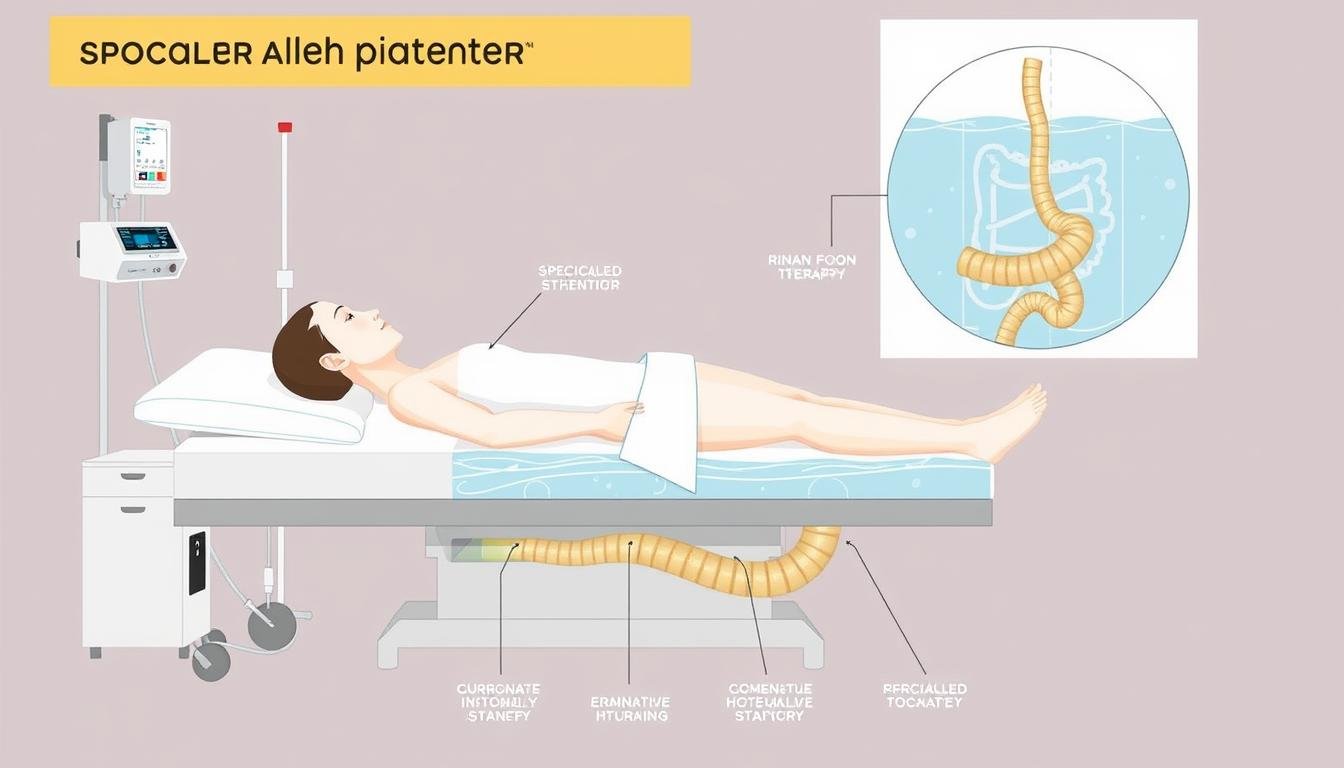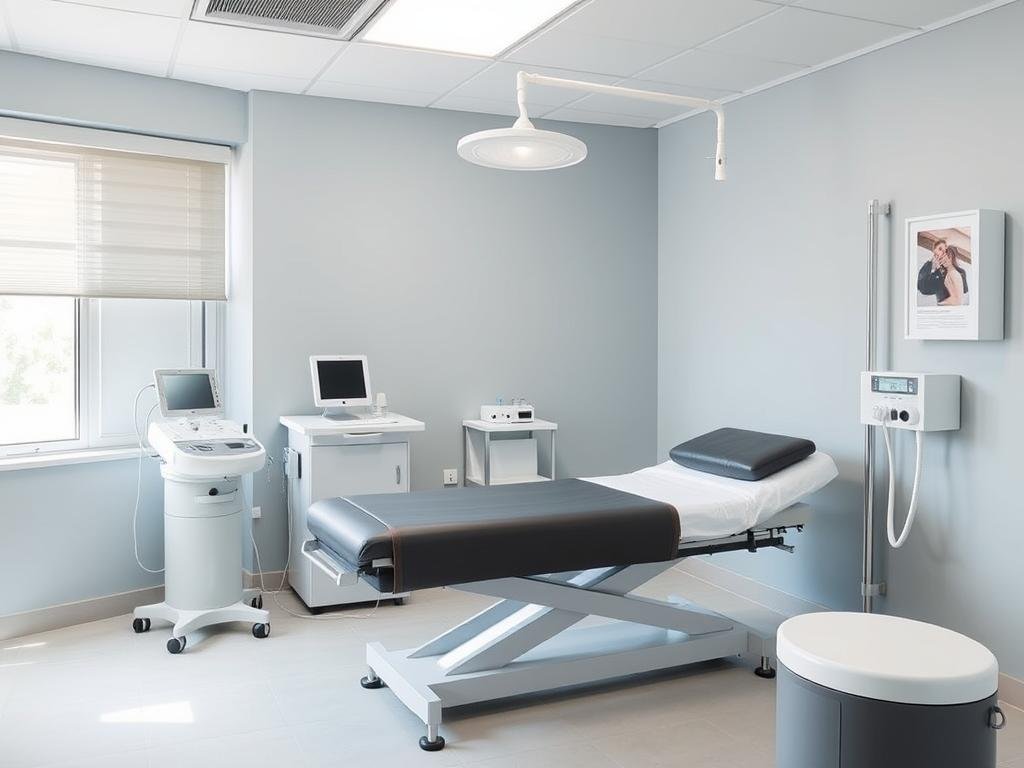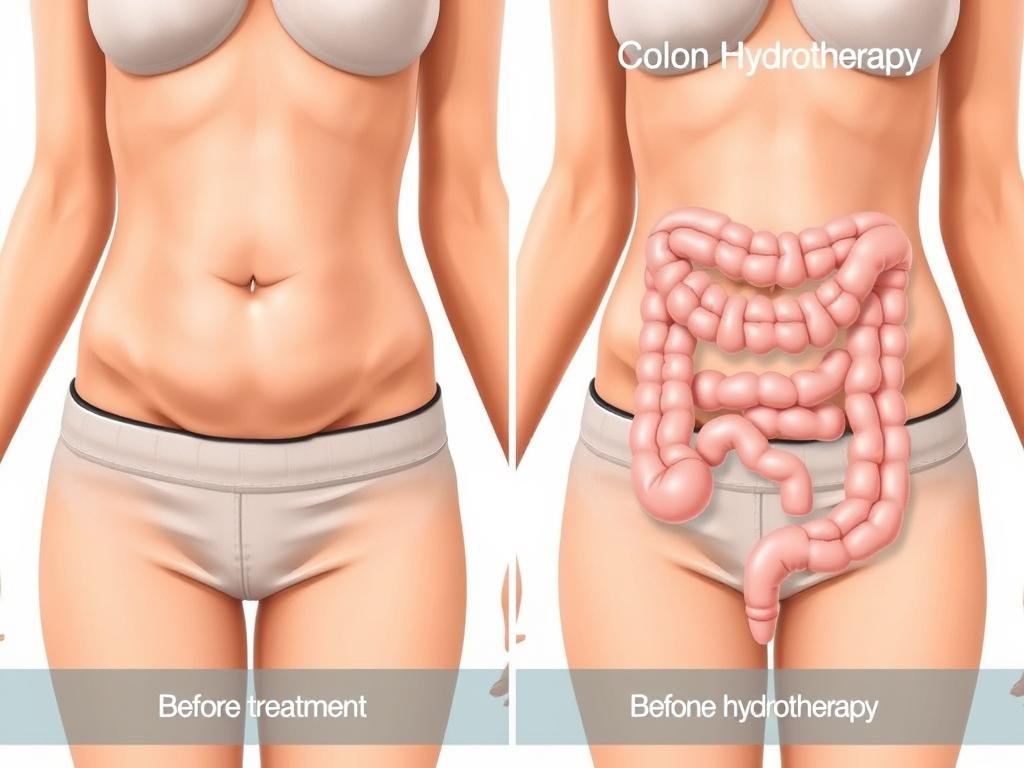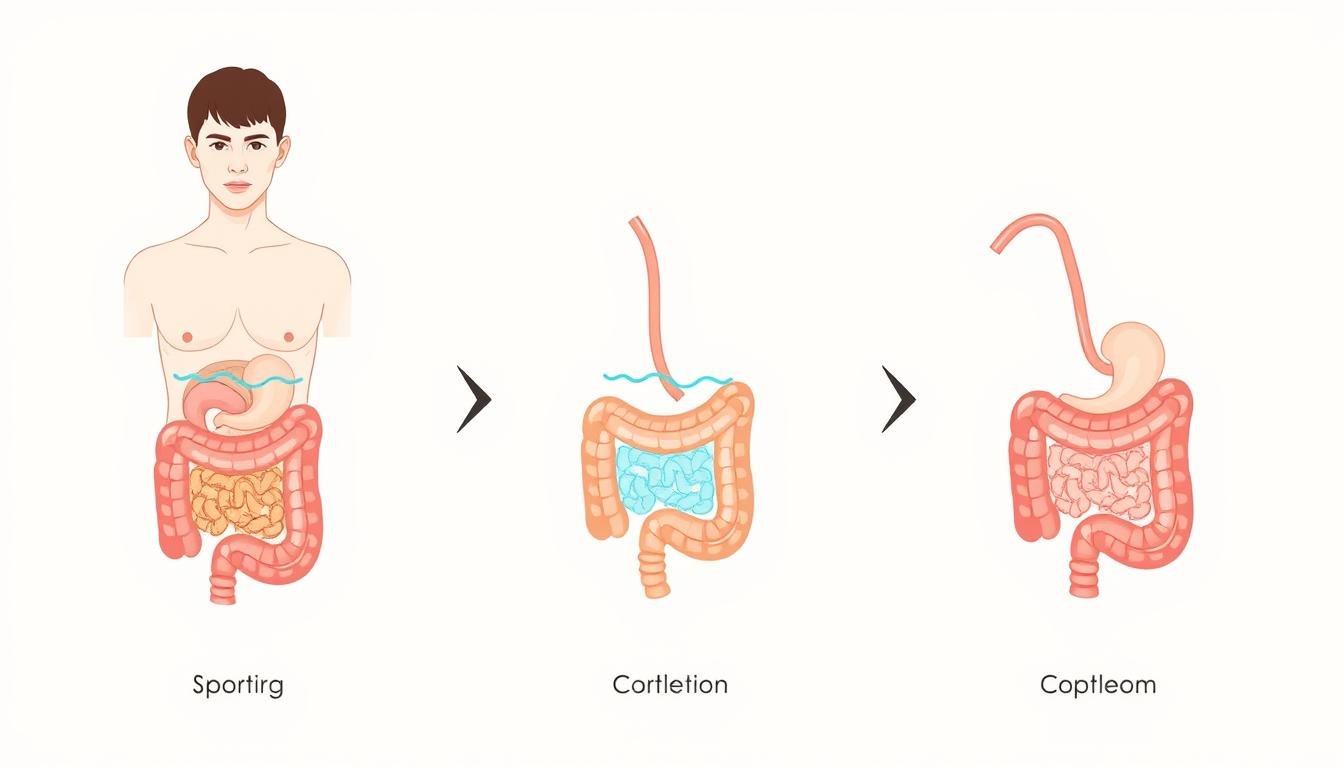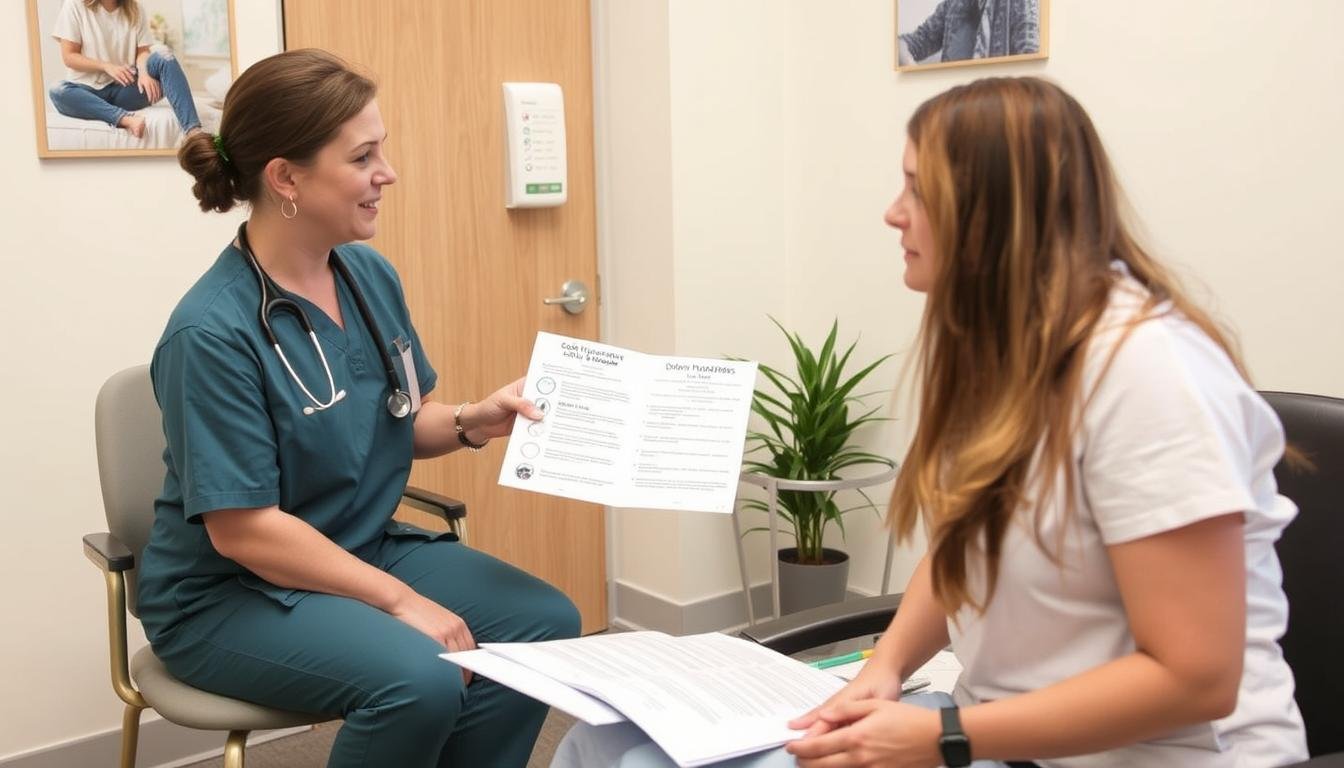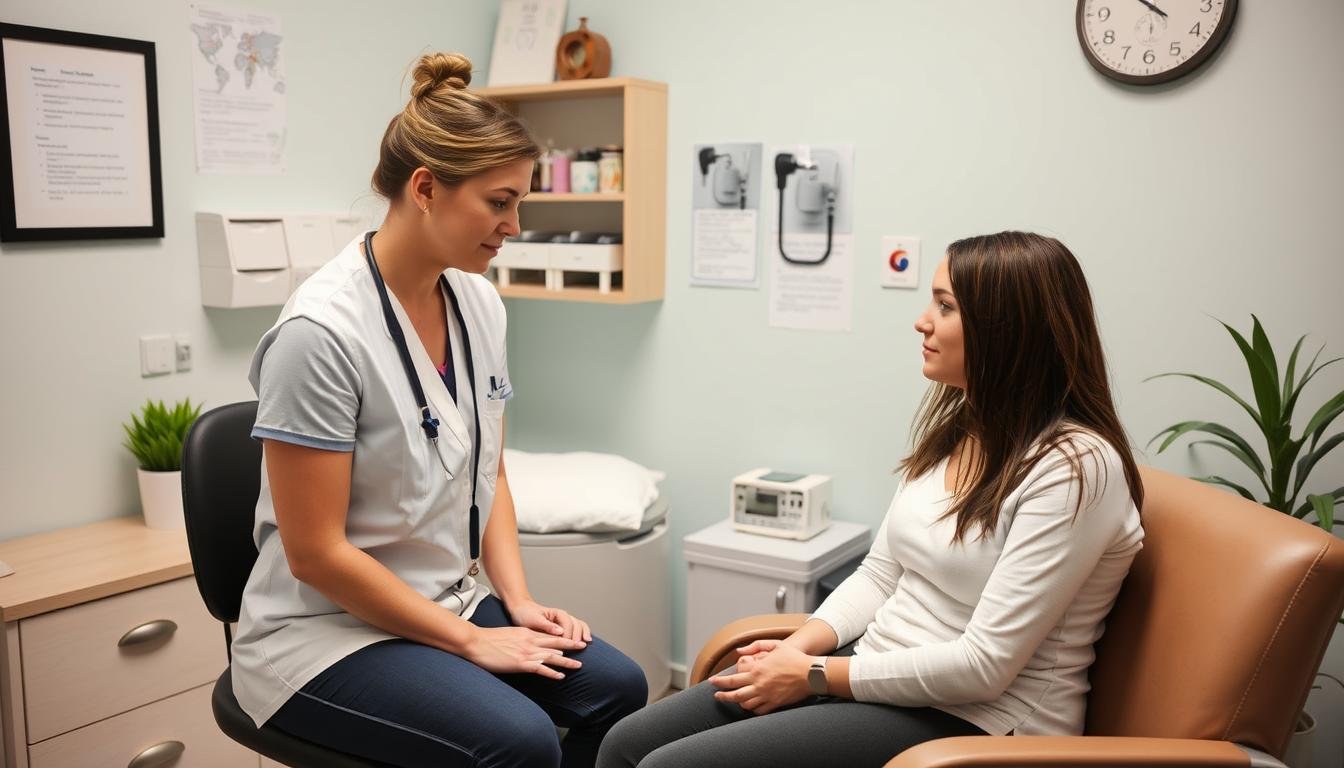For those struggling with digestive issues like irritable bowel syndrome (IBS), chronic bloating, or other digestive disorders, finding effective relief can be challenging. Colon hydrotherapy has gained attention as a potential approach for addressing these concerns. This procedure, which involves flushing the colon with water, has both proponents and critics in the medical community. This article explores the potential benefits, risks, and considerations of colon hydrotherapy specifically for digestive disorders.Ki sa ki idroterapi kolon?

Diagram of a typical colon hydrotherapy procedure setup
Colon hydrotherapy, also known as colonic irrigation or colonic cleansing, is a procedure that involves flushing the large intestine (colon) with water to remove accumulated waste material. During the procedure, a trained practitioner inserts a speculum into the rectum, through which water flows into the colon. The water helps soften and loosen waste material, which is then expelled through a waste tube.
The entire procedure typically takes about 45 minutes and involves the use of several gallons of filtered water. Some practitioners may add additional substances to the water, such as probiotics, herbs, or enzymes, though there’s limited scientific evidence supporting these additions.
⚠️ Important: Colon hydrotherapy should only be performed by certified practitioners who follow proper sanitation protocols and use FDA-approved equipment.
How Colon Hydrotherapy Addresses Digestive Disorders
Proponents of colon hydrotherapy suggest that the procedure may help with various digestive issues by removing accumulated waste and toxins from the colon. The theory is that this cleansing process may reduce the burden on the digestive system and promote better overall function.
Claimed Mechanisms of Action
- Removal of accumulated waste material
- Reduction of bacterial overgrowth
- Decreased exposure to potential toxins
- Improved colon muscle tone
- Enhanced absorption of nutrients
Common Digestive Issues Addressed
- Chronic constipation
- Gonfleman ak gaz
- Irregular bowel movements
- Digestive discomfort
- IBS symptoms
It’s important to note that while many practitioners and patients report benefits, the scientific evidence supporting these claims is limited. Most medical institutions emphasize that the body’s natural elimination processes are generally sufficient for maintaining colon health.
Colon Hydrotherapy and IBS Relief
Irritable Bowel Syndrome (IBS) affects millions of people worldwide, causing symptoms like abdominal pain, bloating, constipation, and diarrhea. Some IBS sufferers report finding relief through colon hydrotherapy treatments.
A small study published in the journal Techniques in Coloproctology in 2016 found that colonic irrigation showed potential benefits for IBS symptoms, including improvements in abdominal pain, constipation, and diarrhea. However, researchers noted that larger studies are needed to confirm these findings and evaluate long-term efficacy.
“After struggling with IBS for years and trying numerous medications, colon hydrotherapy provided me with noticeable relief from bloating and constipation. It’s not a cure, but it has helped manage my symptoms.”
– Patient testimonial
Experiencing IBS Symptoms?
Consult with a certified colon hydrotherapy practitioner to discuss if this approach might be suitable for your specific digestive concerns.
Find a Certified Practitioner
Reducing Bloating with Colon Hydrotherapy
Bloating is a common digestive complaint that can cause significant discomfort and affect quality of life. The sensation of fullness, pressure, and abdominal distension often results from excess gas, constipation, or food intolerances.
Proponents of colon hydrotherapy suggest that the procedure may help reduce bloating by:
- Removing gas trapped in the colon
- Clearing accumulated waste that may contribute to distension
- Improving overall bowel function
- Reducing fermentation of undigested food particles
While many clients report immediate relief from bloating after colon hydrotherapy sessions, it’s worth noting that these effects may be temporary. Addressing the root causes of bloating, such as dietary triggers or underlying digestive conditions, remains important for long-term management.
The Colon Hydrotherapy Procedure: What to Expect
Understanding what happens during a colon hydrotherapy session can help alleviate concerns and prepare you for the experience. Here’s what typically occurs:
Anvan pwosedi a
- Initial consultation with practitioner
- Review of medical history
- Discussion of goals and expectations
- Instructions on preparation (may include dietary adjustments)
During the Procedure
- Changing into a gown (lower body)
- Positioning on a treatment table
- Gentle insertion of lubricated speculum
- Controlled water flow into the colon
- Possible abdominal massage
- Release of water and waste
Apre pwosedi a
- Private bathroom use
- Hydration recommendations
- Discussion of observations
- Recommendations for follow-up
- Resuming normal activities
Most sessions last approximately 45 minutes, though the first appointment may be longer to include the initial consultation. Many practitioners recommend a series of sessions rather than a single treatment, especially for chronic digestive issues.
💡 Tip: Stay well-hydrated before and after your colon hydrotherapy session to support the process and replace fluids.
Safety and Risks of Colon Hydrotherapy
While many people undergo colon hydrotherapy without complications, it’s essential to understand the potential risks involved. The procedure is not suitable for everyone, and certain medical conditions may increase the risk of adverse effects.
Mezi sekirite
- Use of FDA-approved equipment
- Disposable, single-use components
- Practitioner certification and training
- Proper sanitation protocols
- Pre-procedure screening
Risk potansyèl yo
- Elektwolit move balans
- Dezidratasyon
- Perforation of the bowel (rare)
- Infection
- Disruption of gut microbiome
Ki moun ki ta dwe evite idroterapi kolon
The procedure is generally not recommended for people with:
- Maladi enflamatwa entesten (maladi Crohn, kolit emorajik)
- Dènye operasyon kolon
- Emoroid oswa rektal/anal fant
- Maladi kè oswa ren
- Emoroid grav
- Grosès
- Certain medications that affect electrolyte balance
⚠️ Warning: Always consult with your healthcare provider before undergoing colon hydrotherapy, especially if you have existing health conditions or digestive disorders.
Considering Alternative Approaches?
Explore other evidence-based methods for supporting digestive health that may be more suitable for your specific situation.
Discover Alternatives
Alternative Approaches to Digestive Health
While colon hydrotherapy may provide relief for some individuals, there are numerous evidence-based approaches to supporting digestive health that carry fewer risks:
| Approach | Benefis | Implementation |
| High-Fiber Diet | Promotes regular bowel movements, feeds beneficial gut bacteria | Gradually increase fruits, vegetables, whole grains, and legumes |
| Adequate Hydration | Prevents constipation, supports overall digestive function | Aim for 2 liters of water daily |
| Plus | Supports healthy gut microbiome, may improve IBS symptoms | Fermented foods or supplements with healthcare provider guidance |
| Egzèsis regilye | Stimulates intestinal contractions, reduces constipation | 30 minutes of moderate activity most days |
| Stress Management | Reduces digestive symptoms triggered by stress | Meditation, yoga, deep breathing exercises |
These approaches focus on supporting the body’s natural digestive processes rather than intervening with procedures like colon hydrotherapy. Many healthcare providers recommend trying these methods first before considering more invasive options.
FAQs About Hydrotherapy kolon

Èske idroterapi kolon douloure?
Most people report minimal discomfort during colon hydrotherapy. You may experience a feeling of fullness or mild cramping as water enters the colon, but this typically subsides quickly. A skilled practitioner will adjust the water flow and temperature to maximize comfort. If you experience significant pain during the procedure, it should be stopped immediately.
How many sessions of colon hydrotherapy are recommended?
This varies depending on individual needs and goals. For addressing specific digestive issues like IBS or chronic constipation, practitioners often recommend an initial series of 3-6 sessions spaced over several weeks, followed by maintenance sessions as needed. However, there’s no standardized protocol, and recommendations should be personalized based on your response to treatment.
Does colon hydrotherapy remove good bacteria from the gut?
This is a valid concern. Colon hydrotherapy may temporarily reduce both beneficial and harmful bacteria in the colon. Some practitioners address this by recommending probiotic supplements after treatment. However, research on the long-term effects of colon hydrotherapy on the gut microbiome is limited. Maintaining a diet rich in prebiotic and probiotic foods can help support microbial balance.
How is colon hydrotherapy different from an enema?
While both involve introducing water into the colon, there are significant differences. Enemas typically use smaller amounts of water (1-2 quarts) and affect only the lower portion of the colon. Colon hydrotherapy uses more water (up to 16 gallons) circulated throughout the session and aims to cleanse the entire colon. Enemas can be self-administered at home, while colon hydrotherapy requires specialized equipment and a trained practitioner.
Is colon hydrotherapy covered by insurance?
Most health insurance plans do not cover colon hydrotherapy as it’s considered an alternative or complementary treatment. Costs typically range from $60 to $150 per session, depending on location and practitioner. Some practitioners offer package discounts for multiple sessions. Always check with your insurance provider about coverage options.
Making an Informed Decision About Colon Hydrotherapy
When considering colon hydrotherapy for digestive disorders like IBS or chronic bloating, it’s important to weigh potential benefits against risks and to consider the limited scientific evidence supporting its use. While many individuals report subjective improvements in symptoms, more research is needed to establish its efficacy and safety profile.
The best approach to digestive health is typically multifaceted, combining lifestyle modifications, dietary changes, stress management, and appropriate medical care. Colon hydrotherapy may be one component of this approach for some individuals, but it should not replace conventional medical treatment for diagnosed conditions.
Ready to Discuss Your Digestive Health Options?
Speak with a healthcare provider who can help you evaluate whether colon hydrotherapy might be appropriate for your specific situation.
Orè yon konsiltasyon
Remember that digestive health is highly individual, and what works for one person may not work for another. By staying informed and working closely with qualified healthcare providers, you can develop an approach that best addresses your unique digestive concerns.

